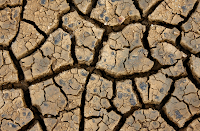It’s nearly lunch time as I’m writing this and the intergovernmental meeting for Somalia is still on my mind. To me it seems that we, as international community, aren’t inviting everybody for lunch, only a select few. Let me explain so that it can become clearer.
A nation is made up of people. These people need to live safely and happily and be able to plan for the future of their families. They need a stable, sustainable life for themselves, their families and their country. Sustainability can only be brought about through cohesion and partnerships between different state departments, governmental offices, people, civil society, security, military, banks etc.
Stability and sustainability cannot be achieved by ourselves, on our own. If you exclude the masses to entertain the few at the lunch table, the proposed solution could become counter-productive. We mustn’t be short-sighted and look straight ahead, without pausing to look left and right, up and down.
My advice to any politician would be to be inclusive when it comes to making a strategic decision that affects the lives of millions of people in any part of the world. It’s good to invest in security and military. However, in my opinion, it’s better if we allow the citizens of the country to feel this through improvement in their education, healthcare, social welfare, housing, transport, economy etc. Security brought through these systems will be more sustainable than the security brought by military alone.
Security is a process inside the hearts and minds of the citizens. When they feel they have what they need, then we can truly talk about security. Security is not just a decision or a declaration: “from today we are secure”. It is a lifelong process, that goes from generation to generation, nation to nation, continent to continent.
If we want sustainable security, we have to be inclusive in our discussions and listen to the masses and invite them to our lunch table.
A nation is made up of people. These people need to live safely and happily and be able to plan for the future of their families. They need a stable, sustainable life for themselves, their families and their country. Sustainability can only be brought about through cohesion and partnerships between different state departments, governmental offices, people, civil society, security, military, banks etc.
Stability and sustainability cannot be achieved by ourselves, on our own. If you exclude the masses to entertain the few at the lunch table, the proposed solution could become counter-productive. We mustn’t be short-sighted and look straight ahead, without pausing to look left and right, up and down.
My advice to any politician would be to be inclusive when it comes to making a strategic decision that affects the lives of millions of people in any part of the world. It’s good to invest in security and military. However, in my opinion, it’s better if we allow the citizens of the country to feel this through improvement in their education, healthcare, social welfare, housing, transport, economy etc. Security brought through these systems will be more sustainable than the security brought by military alone.
Security is a process inside the hearts and minds of the citizens. When they feel they have what they need, then we can truly talk about security. Security is not just a decision or a declaration: “from today we are secure”. It is a lifelong process, that goes from generation to generation, nation to nation, continent to continent.
If we want sustainable security, we have to be inclusive in our discussions and listen to the masses and invite them to our lunch table.




